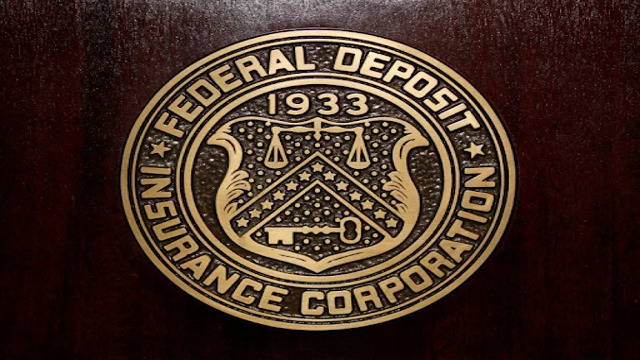
A photo taken at the FDIC headquarters in Washington shows the logo of the Federal Deposit Insurance Corporation. (Source: Reuters)
The U.S. banking sector faced a mixed third quarter as the Federal Deposit Insurance Corporation (FDIC) flagged two more banks as “problem banks” and reported an 8.6% decline in industry profits. While the FDIC did not reveal the identities of these banks, the overall number of problem institutions now stands at 68, representing 1.5% of all U.S. banks. FDIC Chairman Martin Gruenberg described this level as typical, reflecting ongoing challenges in the sector.
The total assets of banks on the problem list climbed to $87.3 billion, an increase of $3.9 billion compared to the previous quarter. This spike comes as the industry grapples with fluctuating economic conditions and lingering post-pandemic disruptions.
Quarterly Banking Profits: A Dip with Resilience
Despite the dip in profits, the banking industry demonstrated resilience. The FDIC attributed the profit decline to a one-time surge in equity security transactions during the second quarter, which was absent this time. However, the industry saw robust net interest income and growing revenues, offsetting some of the shortfall.
Compared to the first quarter of the year, profits showed slight growth. Banks benefited from a $4.5 billion rise in net interest income, driven by stronger interest margins across banks of all sizes. Deposits also increased by 1.1% to $194.6 billion.
Gruenberg emphasized the positive trends, stating, “The banking industry continued to show resilience in the third quarter, with substantial increases in net interest income and margins.”
Caution Flags in Real Estate Lending
Amid these optimistic indicators, there were some concerning signs. The ratio of past-due or non-accrual loans in the commercial real estate sector rose to 2.07%, marking the highest level since 2013. Borrowers in this segment continue to face challenges, particularly due to high office vacancy rates following the pandemic.
However, other areas offered reassurance. Unrealized losses on securities decreased by 29% as interest rates moderated, signalling some relief for banks managing portfolios impacted by rate hikes.
Stability Amid Shifting Dynamics
While the latest FDIC report highlights some challenges, it suggests overall stability in the banking sector. Despite the addition of two banks to the problem list and an industry-wide profit dip, strong fundamentals like rising net interest income, growing deposits, and reduced unrealized losses underscore the sector’s ability to adapt to evolving conditions.















